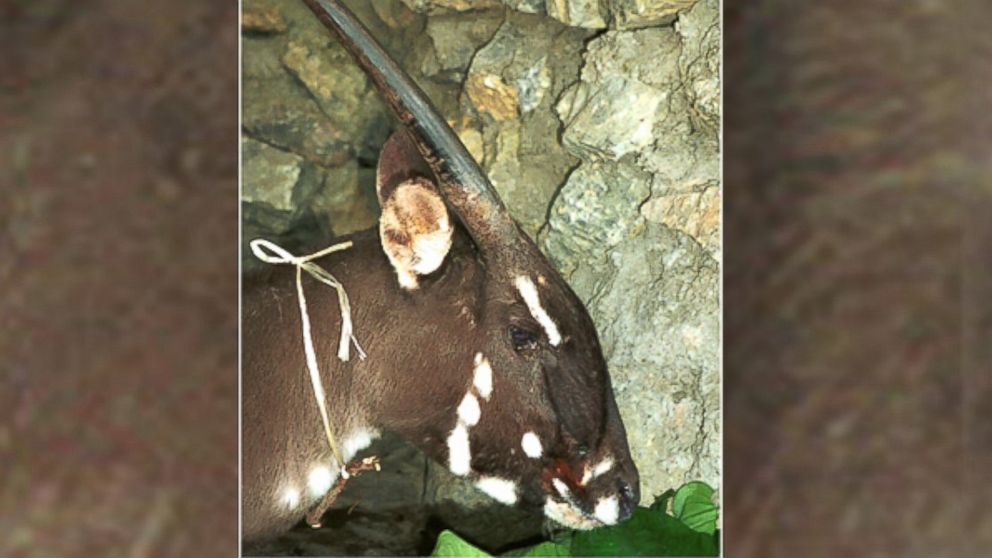'Asian Unicorn' Spotted for First Time This Century
A rarely seen mammal was spotted in the jungle in Vietnam.

— -- One of the rarest and most threatened mammals in the world has been captured on camera for the first time this century, an international conservation group told ABC News today.
Nicknamed the "Asian unicorn" because it has horns and is seen so infrequently, the saola was photographed in Vietnam 14 years after its last confirmed sighting in the wild, Barney Long, the director of the World Wildlife Fund's Species Conservation Program, told ABC News.
PHOTOS: RARE, THREATENED SPECIES CAUGHT ON CAMERA
The critically endangered mammal, which is a cousin of cattle but resembles an antelope, is native to a relatively remote jungle area in Vietnam and Laos and was discovered just 21 years ago, according to the WWF.
"It's just so rare and so hard to find, in remote parts of the forest across difficult terrain," Long said.
No saola is in captivity, and while the scarcity of sightings makes figuring out how many there are nearly impossible, anywhere between a few dozen and around a hundred may exist, according to Long.
The sighting, the first of a saola in the wild in Vietnam since 1998, may boost conservation efforts on the Vietnamese and Laotian border, in the Annamite mountain range to which the saola is endemic, Long said.
"To get a confirmed record changes the game a lot for conservation," Long said, "in terms of motivation, but also political support for saola conservation, and also awareness."
The WWF, in partnership with the Vietnamese government's Forest Protection Department, used a "camera trap"—a camera rigged with an infrared trigger—to capture images of the saola in September. The photos were just recently retrieved from the camera, which was located in a nature reserve set up specifically to protect the saola, Long said.
In addition to camera traps, conservationists also collect land leeches, extracting their blood to determine what animals they have fed on, such as the saola, according to Long. But that method had not turned up any evidence of saola in the area so far, he said.




